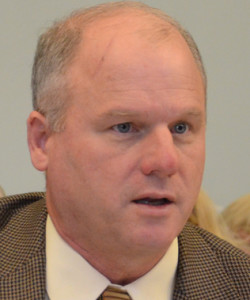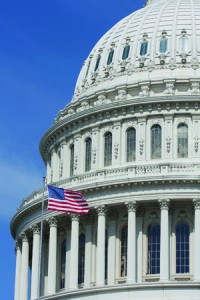By Steve Brawner
© 2015 by Steve Brawner Communications, Inc.
During the next two years, the most important number in Arkansas health care may be 1332.
That’s a section of the Affordable Care Act, the one that created Obamacare, that, starting in 2017, may allow Arkansas significant flexibility in implementing the law – potentially even letting it nullify some of its more controversial elements, including the mandate that individuals buy health insurance. Or maybe not.
Legislators serving on two panels these past two weeks heard testimony regarding Section 1332. Cheryl Smith Gardner is directing the state’s changeover from a federal exchange to a state exchange, which is where small businesses and individuals buy insurance. She once was a researcher for the conservative Heritage Foundation. Dr. Lanhee Chan is a Stanford University research fellow who was the chief health advisor for Mitt Romney’s 2012 presidential campaign.
In other words, these are not left-wingers, and both of them indicated Section 1332 offers the potential for major state-based reforms to the Affordable Care Act.
In a nutshell, here’s how it would work. Beginning Jan. 1, 2017, states can receive waivers from the federal government for large sections of the law provided their reforms meet four requirements. A waiver says the law does not apply in a particular situation.
First, health plans – whether provided by insurance companies or the state – must provide coverage that is at least as comprehensive as would be provided otherwise. What does that mean? It’s not clear, but it could mean that plans in Arkansas could have a heavier focus in some areas and a lighter one in others than they currently have.
The other requirements are that out-of-pocket expenses for individuals must be no higher than they are now; coverage must be provided to a comparable number of people as otherwise would be provided; and the changes must not increase the federal budget deficit over a 10-year period.
The section is so open-ended that it appears states can propose almost anything – although one thing they can’t change is the requirement that insurance companies offer coverage regardless of pre-existing conditions. If a state can figure out a way to cover as many people without the individual and employer mandates, it can propose it. Arkansas might be able to move large parts of its population from Medicaid, which is strictly government health care, to the so-called private option, which is more flexible because it’s government-funded health care through private insurance companies. Chan said it might be possible to collectively make changes to all federal health care programs within a state’s boundaries, including Medicare, where states’ roles now are limited.
“My own view is that 1332 has the potential to be a significant step forward for those seeking market-based health care reform,” he told the Health Reform Legislative Task Force May 28. “The challenge, of course, as with any waiver is that the negotiation process has two parties. It has the state, and it has the presidential administration.”
There’s the catch: The waivers have to be approved by the secretary of Health and Human Services and the secretary of the Treasury, which includes the IRS. The skeptical lady sitting beside me was doubtful those officials will approve anything that’s not more generous to beneficiaries than Obamacare already is. Sen. Terry Rice, R-Waldron, wondered if the administration might fail to hold up its end of the bargain if a waiver were approved. When Chan said that would be “unprecedented,” Rice replied, “I appreciate that thought, but I’m one that (feels) like we’ve seen some unprecedented things.”
On the plus side, the Obama administration has proven itself willing to grant health care-related waivers. The private option, in fact, exists because of a waiver. The administration knows that the Affordable Care Act is widely distrusted in red states like Arkansas, so it has an incentive to be flexible. Judging by the questions legislators asked, most seem to be keeping an open mind. Chan’s job in 2012 was to help defeat Obama, and he seems cautiously optimistic about the possibilities.
No state has yet submitted a waiver request, and Arkansas is nowhere near doing so. In fact, most legislators only now are learning much about it. It could create a lot of work that leads nowhere and is a huge disappointment. Or it could let states creatively reform health care reform. We won’t know which will be the case until 2017 is much closer. Until then, remember the number 1332.

